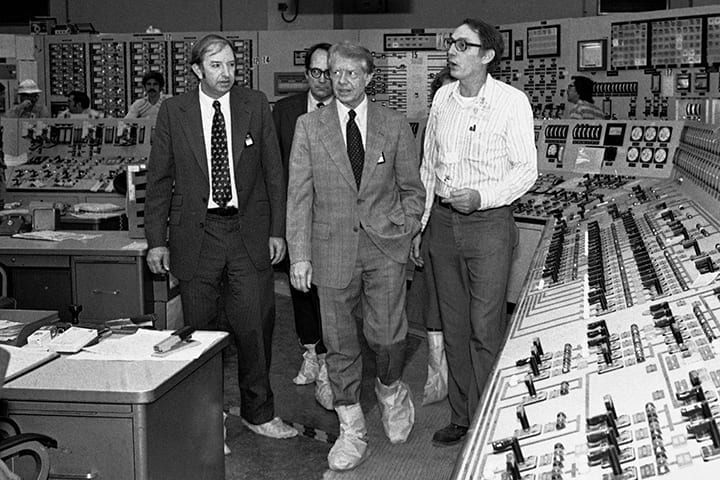Understanding Energy Crises of the 1970s and Avoiding Problems Today
If you were alive and living in the U.S. during the 1970s, you probably remember waiting in long lines to fill your car with fuel. Yet, gasoline wasn’t the only item in short supply during the “Me Decade”—natural gas was seemingly running out and electricity demand was growing so much that new power plants were going up all over the country.
“I would argue, and I think a lot of historians would agree with me, that the 1970s was the most important decade in U.S. energy history, and I say that because of the gasoline interruptions. We had three big crises in the Middle East that reduced our supplies of oil, and that got so bad that at one point, in some states, less than 50% of the stations had any gasoline to sell at all,” Jay Hakes, author of the book Energy Crises: Nixon, Ford, Carter, and Hard Choices in the 1970s, said as a guest on The POWER Podcast.
“It was also a time where electric demand was expanding at a very rapid rate. There was a lot of optimism that nuclear would fill most of that void,” Hakes said. However, as fate would have it, the Three Mile Island (TMI) accident in 1979 pretty much put an end to the nuclear power construction heyday.
In addition to writing books, Hakes has served as the administrator of the U.S. Energy Information Administration during the Clinton administration and as director for Research and Policy for President Obama’s BP Deepwater Horizon Oil Spill Commission. He was also the director of the Jimmy Carter Presidential Library for 13 years, and he has had access to some of President Carter’s personal diaries, giving him unique insight into the events that occurred during Carter’s presidency.
“Jimmy Carter worked for Admiral Rickover when they developed the first nuclear submarine,” Hakes pointed out. “So, he actually knew the technology of nuclear reactors—obviously better than any president and better than some of the people that worked at the Atomic Energy Commission.”
Carter had also spent time on recovery efforts after the world’s first nuclear accident, which was at the Chalk River site in Ontario, Canada, in 1952. Carter was part of a group that was sent into the containment vessel to clean it up. “So, he would be the best president you’d want to have if there was a nuclear accident.”
Hakes noted that reports being sent to the president during the first couple of days after the TMI accident were mostly positive. However, on the third day, Carter decided he needed someone with technical expertise at the site to provide him with better details, so he had a direct phone line set up with Harold Denton, who was onsite following the situation as the head of nuclear reactors for the Nuclear Regulatory Commission (Figure 1).

“The short story is the coolant system, which keeps the core from melting, broke down, but the containment vessel—that four-feet thick concrete structure that is around the reactor—did its job, and so, very little contamination reached the public,” Hakes said.
Following the incident, Carter formed a commission to investigate and recommend reforms for the nuclear industry. “I think that commission did an excellent job,” said Hakes, noting that many improvements were made based on the lessons learned. “The industry and the government both did a good job of fixing those safety problems. So, you know, in that sense, it’s a good model for dealing with energy crises.”
Hakes explained some of the policies, not only of Carter’s administration, but also of Nixon’s, that exacerbated the energy crises of the 1970s, and he shared his insight on how President Biden’s agenda could affect the energy industry going forward. He noted that Biden has put a pause on leasing on federal lands, but said he doesn’t expect that to affect production, at least for several years.
“I wish Biden wasn’t under so much political pressure, because I think there is a middle ground,” Hakes said. “For the economy, I don’t think you want to stop leasing in places like New Mexico, and offshore Texas and Louisiana, where there’s a lot of jobs involved. And you’re not really helping the climate if you stop drilling there, because the drilling will happen, you know, in Saudi Arabia or wherever. So, I think if he comes to that conclusion—and I’m writing some pieces kind of urging that middle ground—I think we’ll be in good shape.”
To hear the full interview with Hakes, which also includes his views on the Texas blackouts, among other things, follow the links below to The POWER Podcast show pages on your favorite podcast platform or click on the SoundCloud player below to listen now:
For more power podcasts, visit The POWER Podcast archives.
—Aaron Larson is POWER’s executive editor (@AaronL_Power, @POWERmagazine).